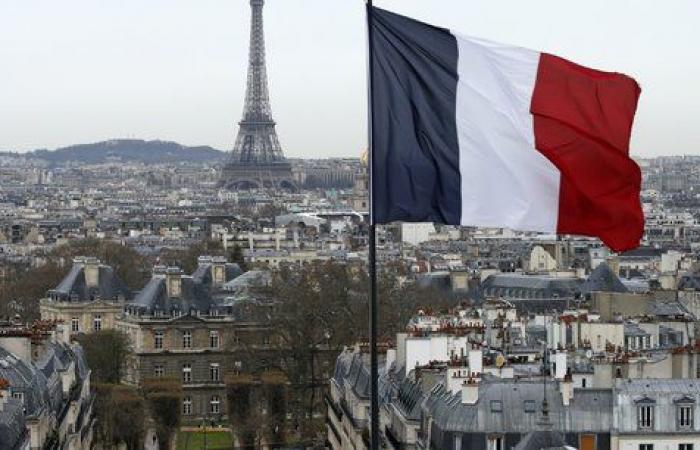Donald Trump could provoke “ a financial crisis » which would affect many economies, including Europe. This is the disaster scenario raised by a study by the Pictet Institute Research, published at the beginning of November. At the origin of these fears: the program of the newly elected Republican which notably plans to increase the debt of the United States by 7,750 billion dollars, according to estimates by the Committee for a responsible Federal Budget.
A promise of colossal spending, which adds to an already problematic situation. Public debt peaks, across the Atlantic, at $35.8 trillion according to the US Treasury, or 125% of US GDP when the budget deficit is expected to reach 6.4% of GDP this year. A debt binge that will cause the interest burden to represent more than 60% of the American federal deficit by 2028, according to the Pictet Research Institute which warns “ that such a development could lead to a collapse of US Treasuries. »
Gradually estimating that the State might not be able to honor its debts, lenders could, in fact, become much rarer and demand an interest rate much higher than the current 4.3% of the 10-year bond.
The (colossal) debt of the United States does not worry the candidates
And if the billionaire soon to head the government seems deaf to warnings, the American problem could well become a major concern for France.
The American collateral problem
In the event of a surge in interest rates across the Atlantic, “ the risk would be, firstly, a knock-on effect on European rates, if investors become more cautious », explains to The TribuneEmile Gagna, economist at Candriam. However, bank credit rates are partly indexed to those of government bonds, “ this would add an additional cost to public finances, but also to businesses and households. »
And the shock wave would not stop at a simple contagion. A crash in the American borrowing rate would collapse the value of old bonds on the secondary market which would not find buyers. Investors, always ready to lend to the American State, would, in fact, rush towards the new bonds with higher rates and abandon the old bonds (traded on the financial markets) which would then be sold off to attract the last buyers.
A mechanism which would remain at the level of simple collateral damage… if this asset were not at the center of global finance. Except that the latter, “ seen as “risk-free”, is widely used as collateral », recalls the economist from Candriam. In other words, many European and French banks and companies are pledging their American bonds to borrow riskier assets.
« If the collateral of banks and companies collapses, they can quickly default on their payments. », warns Maria Vassalou, director of the Pictet Research Institute.
The shock wave of the fall of the dollar
Finally, a third mechanism is added to this worst-case scenario: the fall of the dollar.
Since bond securities are purchased in dollars, in the event of a massive sale of these assets, the greenback would also be swept away in their fall. The price of the latter is, in fact, very dependent on the massive demand from buyers of American debt.
But the dollar is at the center of global finance. particularly because many emerging countries borrow in this currency and would therefore suffer very directly from a fall in its value », Warns Anne-Sophie Alsif, chief economist at BDO France. “ If Europe is less exposed, because our States, businesses, and households borrow in euros, the fall of the dollar would have catastrophic consequences for French and European banks since they have a large number of greenbacks in reserve. ”, she notes.
« All financial institutions having lost money due to the fall of the dollar would therefore stop lending to other banks, businesses and households, which would cause a liquidity crisis in France. », says the economics professor at the Sorbonne.
The ECB to Trump's rescue
Faced with this triple crisis, the Pictet Institute Research believes that central banks around the world would come to the rescue without hesitation. “ It could, first of all, lower the refinancing rate to lend at a lower cost to banks, compensate for the lack of money on the markets and thus encourage them to lend again to restart investments and the economy. », Details, for her part, Anne-Sophie Alsif.
At the same time, “ the central banks of the United States, Europe, Japan, Canada and others will meet to establish a common plan to save the financial system. This would probably involve the massive purchase of American bond securities pto absorb the offer and lower its rate », adds Émile Gagna of Candriam.
But the guardians of key rates should not put on their financial firefighter hats just yet. “ In the immediate future, the difficulty experienced by the rest of the world in weaning itself from safe values and other American assets constitutes the “cement” which allows » to guarantee demand for American bond securities, affirms the study by the Pictet Research Institute. Unless American finances are threatened by an actor from the West. “ China, the United States' largest creditor with $770 billion in bonds held, has reduced its purchases of U.S. debt in recent months and this has had a slight impact on the rate. However, this risk of closing the Chinese buyer tap could be accentuated with Trump, which could worry other buyers », warns Anne-Sophie Alsif of BDO.
Victory of Donald Trump: this threat will (really) worry China






